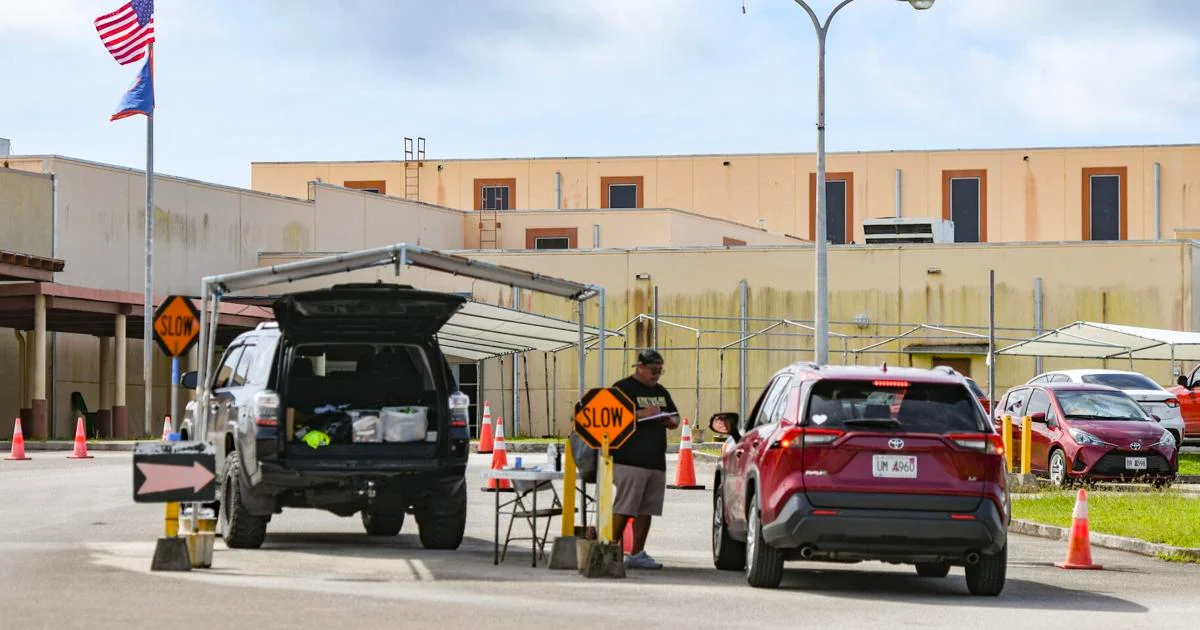Bill for up to 10-year jail time, $25K fine for bomb threats draws support from GDOE, AG, GPD, GHS/OCD
By By Julianne Hernandez Pacific Daily News
Copyright guampdn

Vice Speaker Tony Ada’s bill seeking up to 10 years of imprisonment and up to $25,000 fine for those convicted of making bomb threats, as well as to classify them as terroristic conduct, received support from education officials and Attorney General Douglas Moylan.
The Guam Police Department and Guam Homeland Security/Civil Defense submitted written testimony also supporting the bill.
Education Superintendent Erik Swanson testified in support of the bill during Friday’s public hearing, telling senators about serious disruptions caused by bomb threats in schools despite their lower frequency among disciplinary violations.
“Acts of terroristic conduct in the Guam Department of Education are not at the top of the behavioral infractions committed across all 41 or now 39 campuses but it is a behavior of severe impact to school operations,” he said.
The vice speaker’s Bill 162-38 would expand the legal definition of terroristic conduct and increase fines for bomb threats to as much as $25,000 and up to 10 years imprisonment.
The measure also proposes eliminating community service as a penalty alternative and would allow businesses affected by threats to pursue civil lawsuits.
All fines would be directed to the Criminal Injuries Compensation Fund, under the bill.
‘Terrorism’
The attorney general, in his testimony, said bomb threats are a form of terrorism that strain emergency response systems and cause widespread fear.
“Calling in a bomb threat is a form of terrorism intended to instill mass fear in our community. It creates a reaction that no one can predict,” Moylan told senators. “From our law enforcement perspective, 100% efficiency must confront each threat for fear that this time it’s real, a mass shooter or explosive device might create many casualties.”
Moylan encouraged lawmakers to clarify how fines will be distributed, to require automatic adult charges for minors 16 and older, and to explore legal liability for parents of juvenile offenders.
“We support your efforts to modernize Guam law in line with technology and growing injury to crime victims from terroristic conduct,” he said. “We also urge that, upon passage of this bill, the Guam Department of Education make as part of their civics or government curriculum education techniques and awareness of why this behavior is wrong and the consequences.”
Homeland Security, in a written testimony, proposed a minor amendment for clarity in the section dealing with interference with public services.
The amendment would change the Guam Code Annotated to specify that a person commits a crime against the community if they knowingly interfere with government services or deliver false information that disrupts operations such as education or utility delivery.
Reduction in cases
Swanson submitted a five-year trend showing a 53% reduction in adjudicated cases of terroristic conduct since GDOE began using the legal definition in 2020.
The data showed 87% of offenders were male, with most incidents occurring in high schools.
“The extensive disruption of school instructional time and government and private sector operations exacts a heavy financial cost, endangers the community, and unnecessarily burdens first responder assets,” he said. “Often the most powerful deterrents are those that impact the pocketbook. If perpetrators know that they will have to incur a heavy financial burden, they may think twice before committing the act.”
Swanson asked lawmakers to clarify how the legislation would affect minors and whether their parents or guardians would bear financial responsibility.
Discouraging ‘acts of stupidity’
Peter Alexcis Ada, a longtime member of the Guam Education Board, gave his full support for the bill, and called for stricter consequences for parents.
“Bomb threats are usually done by in-house students or someone associated with the school. This has to stop,” he said. “Parents have to know what their children are doing inside their home and outside. It is their parents’ responsibility.”
Ada, the chairman of the board’s Health and Safety Committee, proposed requiring parents of students who make threats to accompany their children through the entire school day for 30 days, including during restroom and lunch breaks.
“I promise you that if they are found to be guilty… the kids won’t like this,” he said. “If they’re on public assistance, we must inform public assistance, be it [Guam Urban Housing and Renewal Authority] or [Department of] Public Health, of the offense. There are two options: warning or dismissal of the public assistance.”
He also recommended that students who vandalize public property be required to repair or replace any damage caused.
“If enacted, it will expand the definition of terroristic conduct involving bomb scares and will provide specifically for places open to the public,” Ada said. “We’ve all been through them. They forced the evacuation of government buildings, shopping malls and even regular office buildings. Additionally, they divert public safety resources, such as fire trucks, ambulances and police cruisers, away from other needs of our community.”
Ada said threats go beyond foolish behavior and must carry serious consequences.
“Most people in Guam consider a bomb scare as acts of stupidity. They are costly to the victims, and offenders should be held both criminally and financially responsible,” he said. “It is my hope that a tougher law would discourage these acts of stupidity. Enough is enough.”



